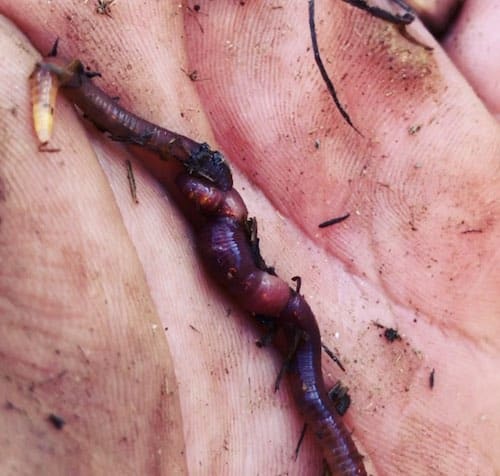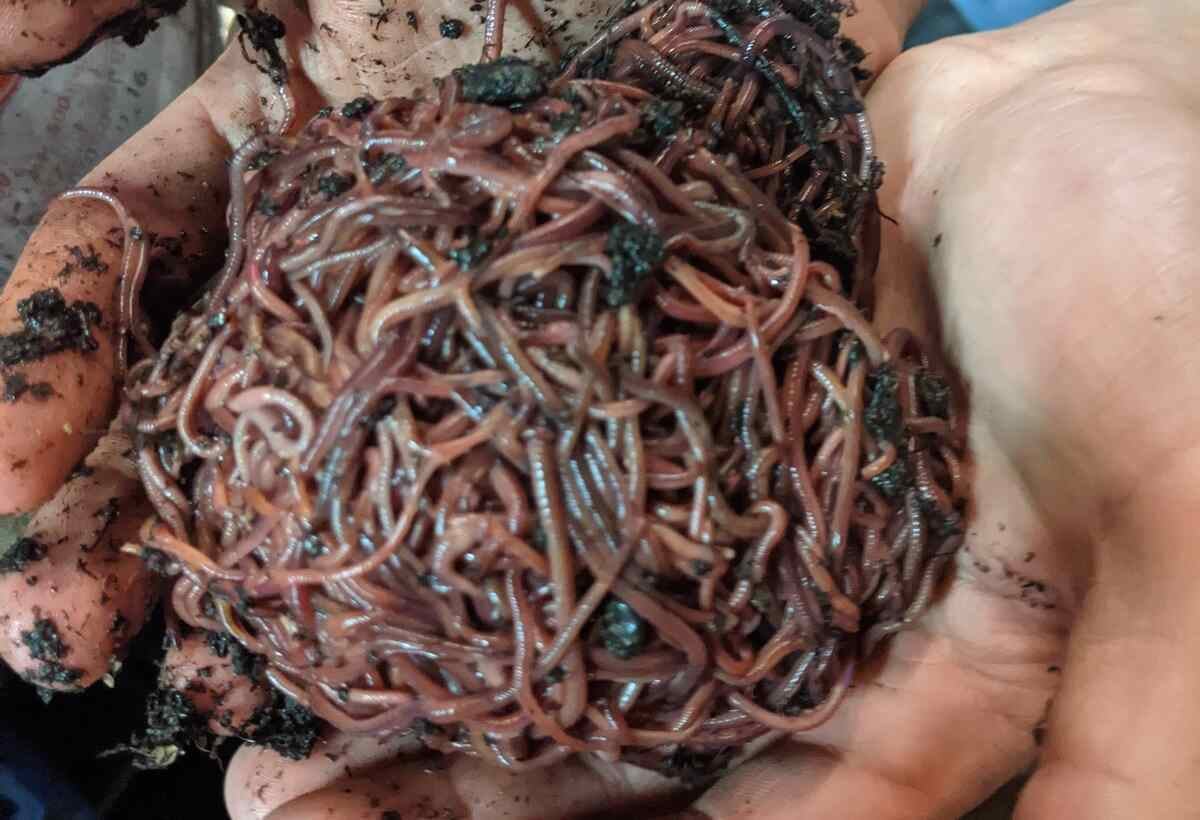Red Wiggler Worms - Perfect for Vermicomposting and Dirt Enrichment
Wiki Article
Optimizing the Perks of Red Wiggler Worms: A Comprehensive Handbook for Home Gardeners and Urban Farmers
In the realm of sustainable horticulture practices, red wiggler worms stand as unrecognized heroes, silently transforming natural waste right into nutrient-rich castings that can function marvels for soil wellness. As home gardeners and metropolitan farmers significantly seek cost-efficient and environmentally pleasant ways to boost their gardens, the possible benefits of utilizing the power of red wigglers can not be overstated. From reducing cooking area waste to cultivating healthier plants, the application of these humble creatures uses a wide variety of advantages. By checking out the details of how to efficiently take care of and maximize the benefits of red wiggler worms, individuals can unlock a wealth of chances for enhancing the sustainability and efficiency of their horticulture ventures.Comprehending Red Wiggler Worms
Red Wiggler worms, renowned for their efficient composting capabilities, are a types of earthworms commonly used in vermiculture techniques. These worms, medically recognized as Eisenia fetida, grow in decaying natural product, making them ideal candidates for composting.One key characteristic of Red Wiggler worms is their reproductive rate. These hermaphroditic creatures possess both male and female reproductive organs, allowing them to recreate rapidly under beneficial conditions. A mature Red Wiggler can produce multiple offspring in a brief duration, ensuring a steady population within a composting system.

Establishing Up a Worm Bin
When establishing a worm container for vermiculture objectives, correct prep work and attention to information are important for creating a conducive atmosphere for Red Wiggler worms. Begin by choosing an appropriate container for your worm container.
Place the worm bin in a trendy, dark place away from straight sunshine and extreme temperatures. Consistently check the wetness levels, including water if the bed linen really feels completely dry or flaky. Feed the worms a balanced diet of fruit and veggie scraps, staying clear of citrus fruits, onions, and spicy foods. By following these actions, you can establish a flourishing worm container that will efficiently refine organic waste right into nutrient-rich vermicompost for your garden.
Feeding and Preserving Worms
Ensuring a healthy and well balanced diet regimen is important for the health and productivity of Red Wiggler worms in a vermiculture system. Red Wigglers are ravenous eaters, qualified of consuming their very own body weight in raw material daily. To preserve a growing worm populace, it is vital to provide them with a range of food scraps such as reference fruit and veggie peels, coffee premises, tea bags, and smashed eggshells. However, it is essential to prevent feeding them citrus fruits, onions, garlic, milk items, meat, and oily foods as these can be hazardous to the worms or trigger unpleasant smells in the container.Correct dampness degrees are additionally essential for the health of Red Wiggler worms. The bed linens should feel like a damp sponge, providing enough moisture for the worms to take a breath via their skin. Routinely check the moisture degrees and adjust by adding water or completely dry bed linens product as required. Furthermore, preserving appropriate temperature conditions between 55-77 ° F(13-25 ° C )will make certain optimum worm task and recreation. By vigilantly monitoring their diet, dampness, and ecological conditions, home gardeners and urban farmers can maintain a productive and healthy Red Wiggler worm populace for composting functions.
Collecting Worm Castings
To effectively remove nutrient-rich worm castings from the vermicompost, an organized harvesting process is essential for making best use of the composting advantages. The first action in collecting worm castings is to motivate additional hints the worms to migrate to one side of the container.After the castings have actually been collected, it is very important to divide any staying worms from the spreadings to avoid hurting them throughout storage or application. One reliable method is to develop cone-shaped heaps of castings under brilliant light. Worms will instinctively move away from the light, enabling for easy splitting up and elimination.
Last but not least, the harvested worm castings ought to be kept in an awesome, dark, and dry place to maintain their quality and performance as a nutrient-rich dirt amendment. By complying with these actions, home gardeners and metropolitan farmers can make best use of the benefits of red wiggler worms in their vermicomposting systems.
Utilizing Worm Castings in Gardening
The consolidation of nutrient-rich worm castings into garden dirt can substantially boost plant development and general dirt wellness. Worm spreadings, also called vermicast, are a natural fertilizer produced by red wiggler worms as they damage down raw material. These spreadings are rich in necessary nutrients like nitrogen, phosphorus, potassium, and useful microorganisms that promote plant growth and improve soil framework.When utilizing worm castings in gardening, it is necessary to mix them extensively into the dirt or utilize them as a top clothing around plants. The slow-release nature of worm spreadings ensures a steady supply of nutrients to plants gradually, minimizing the risk of nutrient leaching and promoting lasting soil fertility. Additionally, worm spreadings assist improve dirt aeration, water retention, and microbial activity, developing a healthy environment for plant origins to flourish.

Final Thought
In conclusion, the use of red wiggler worms in home horticulture and urban farming can substantially profit soil health and wellness and plant development. By understanding exactly how to set up and preserve a worm container, feed the worms effectively, and harvest their nutrient-rich castings, garden enthusiasts can take full advantage of the advantages of these earthworms. Incorporating worm castings into horticulture practices can enhance soil fertility and general plant efficiency. Overall, red wiggler worms provide a lasting and reliable solution for enhancing yard and ranch yields.In the world of sustainable gardening techniques, red wiggler worms stand as unsung heroes, silently changing organic waste into nutrient-rich castings that can work marvels for soil health.When developing a worm bin for vermiculture functions, correct prep work and focus to information are vital for developing a helpful atmosphere for Red Wiggler worms. The very first step in gathering worm spreadings is to urge the worms to move to one side of the bin. Worm spreadings, additionally understood as vermicast, are an all-natural fertilizer check my reference produced by red wiggler worms as they break down natural issue. By comprehending just how to establish up and maintain a worm bin, feed the worms appropriately, and harvest their nutrient-rich spreadings, gardeners can make the most of the benefits of these earthworms.
Report this wiki page